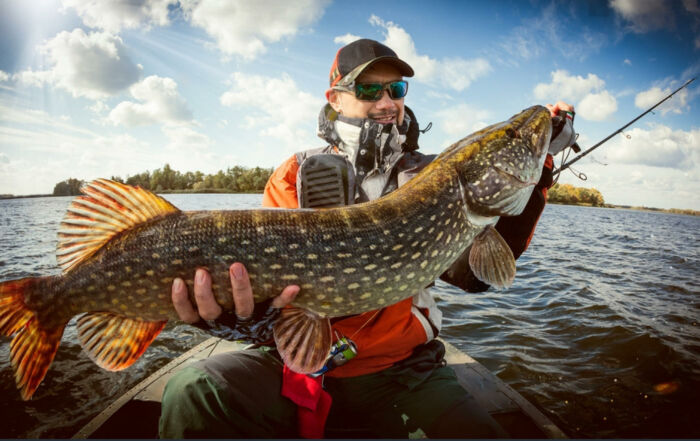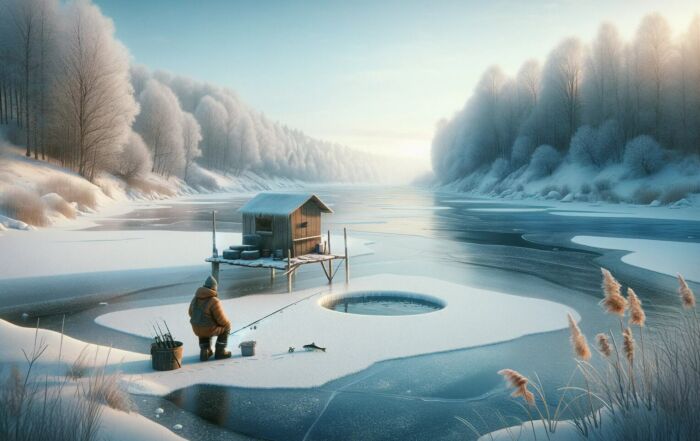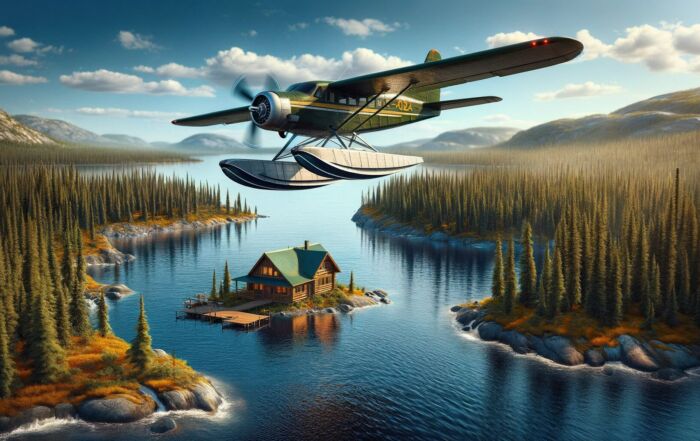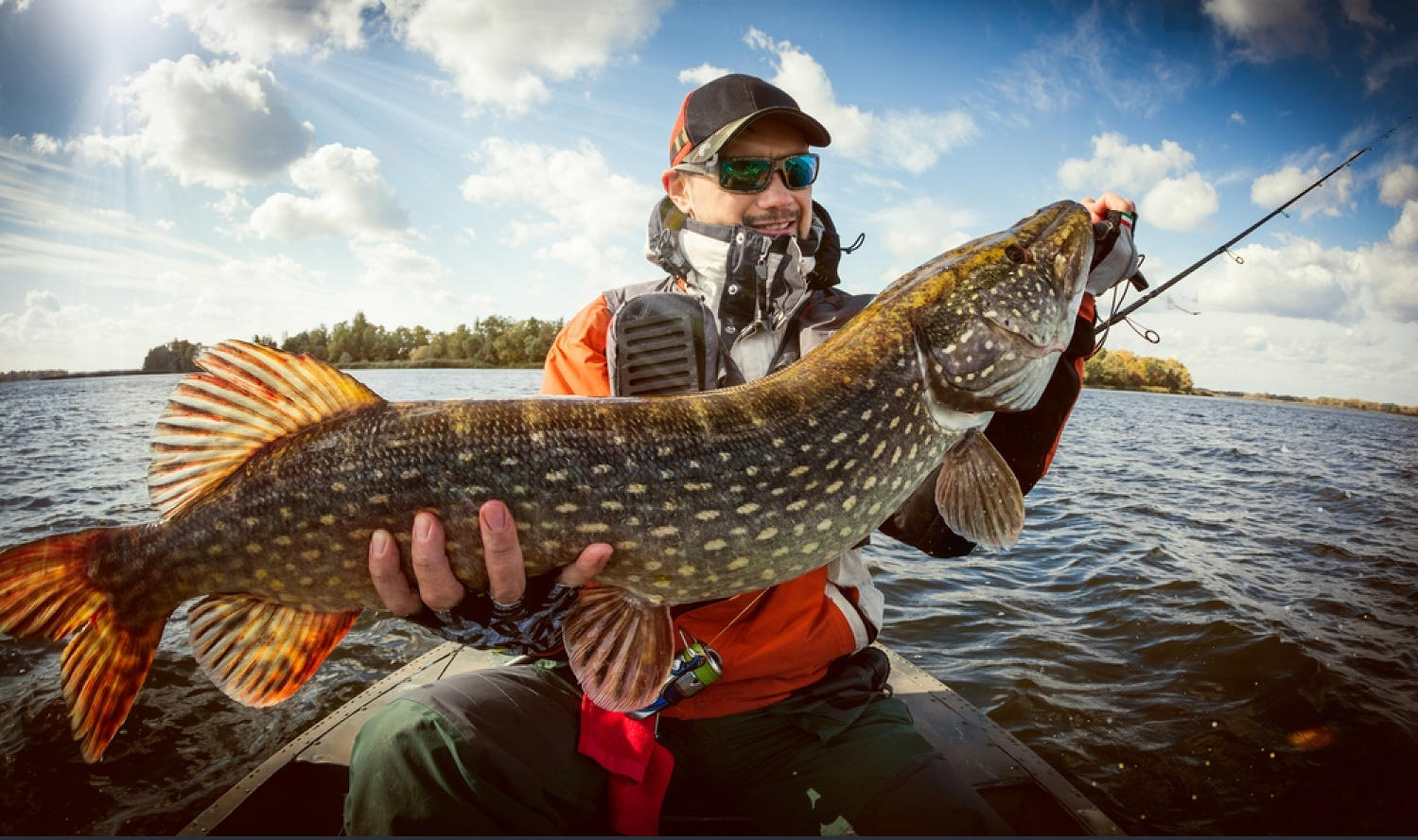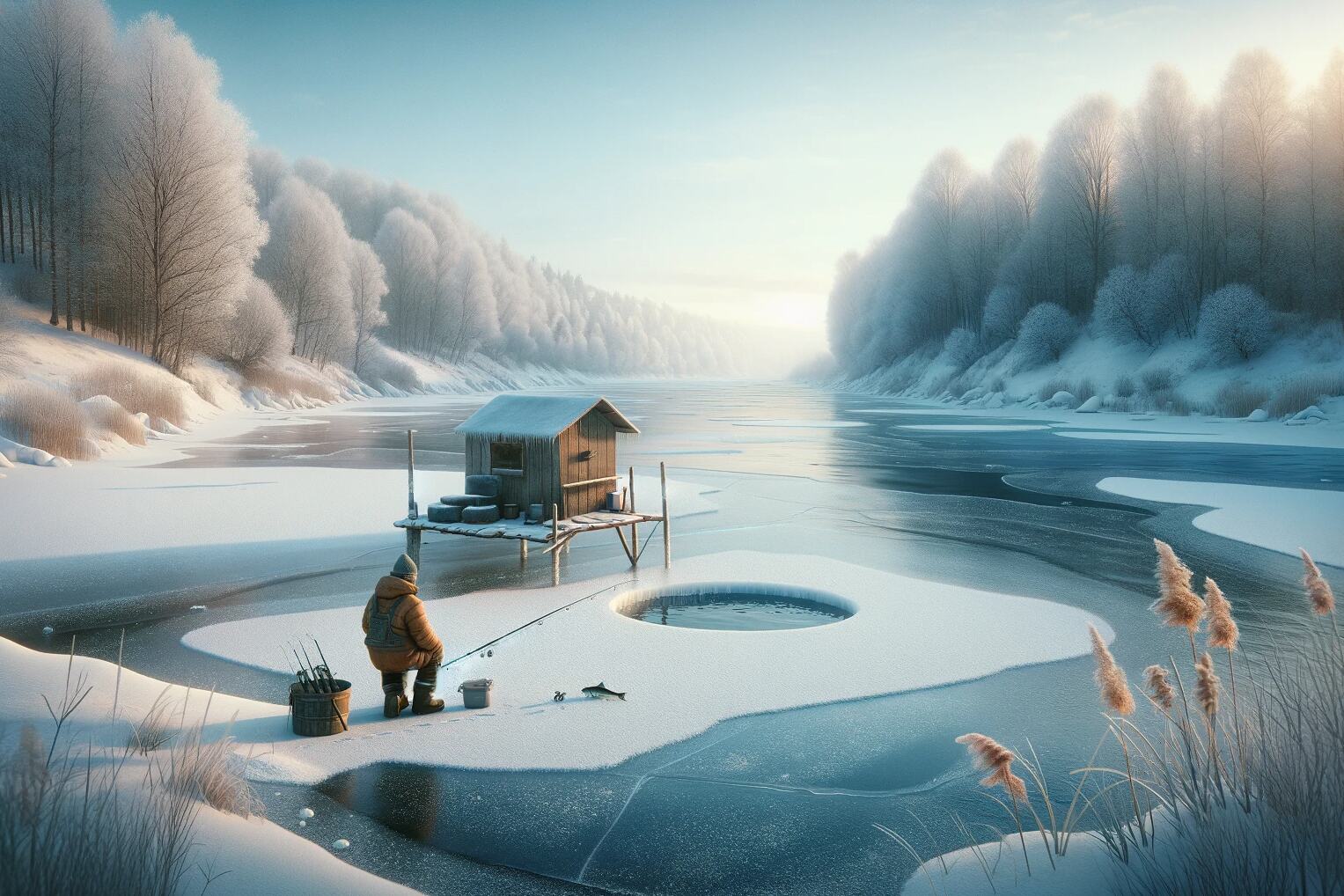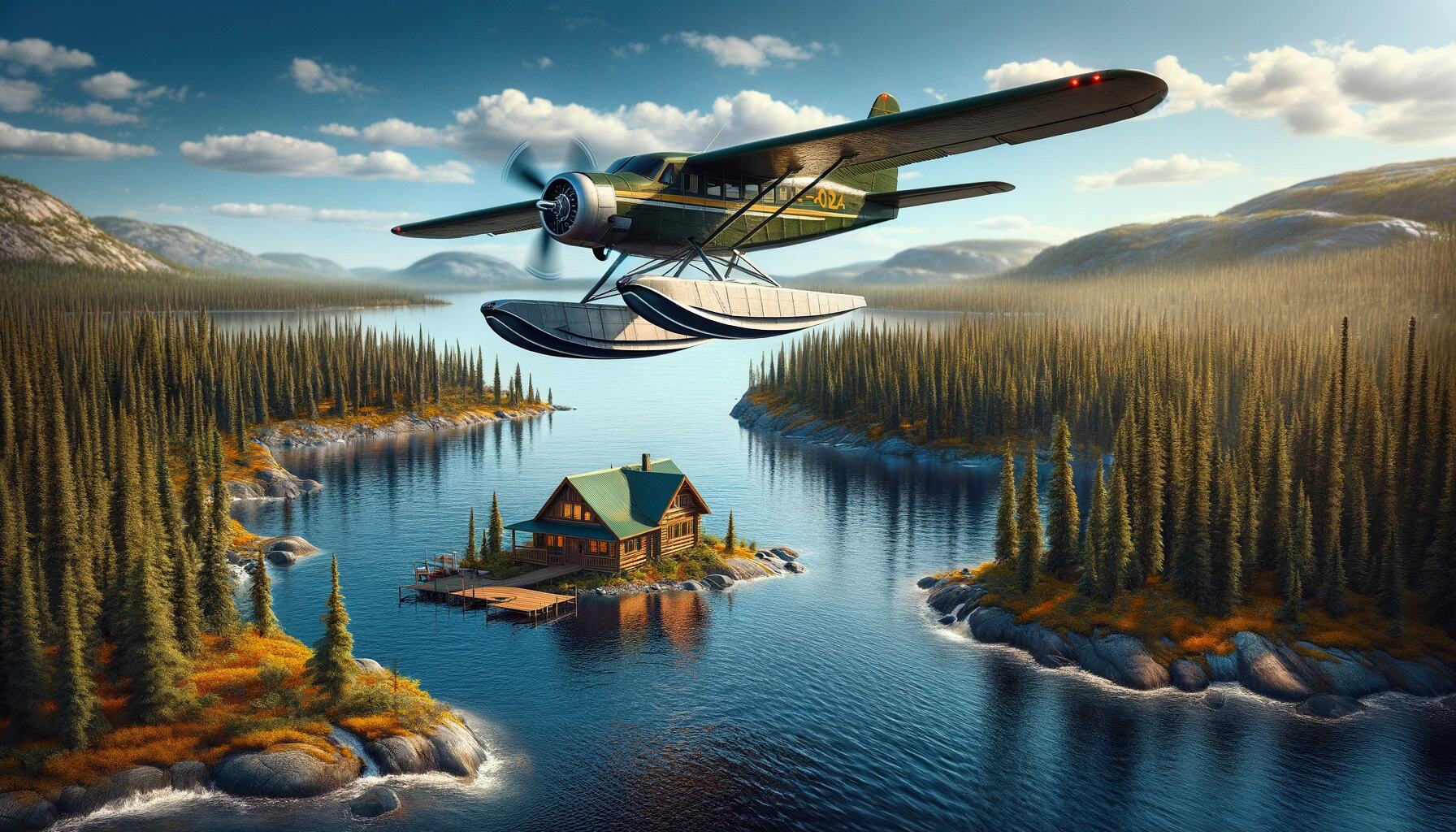Your Ultimate Guide to an Exciting Canadian Fishing Lodge Trip
Are you planning a Canadian fishing adventure? Navigating the world of fishing lodges and pricing can be as tricky as catching that elusive trophy fish. Don’t worry; we’re here to help you reel in the best deal and make your fishing dreams come true. In this guide, we’ll unravel the mysteries of lodge pricing, helping you identify the perfect fishing haven while ensuring you get the most value for your money.
Where to Begin When Evaluating Fishing Lodge Prices
When examining pricing structures and package inclusions offered by fishing lodges, you’ll find that they vary significantly. Navigating this landscape can be challenging. To help you make informed decisions, consider the following questions:
- Determining Value: How can you determine whether a quoted rate aligns with the quality of the experience you’ll receive?
- Lodge Quality Assessment: What criteria should you employ to ascertain whether a fishing lodge meets your expectations?
- Price Discrepancies: Why do certain lodges command higher prices compared to others?
This guide aims to demystify these considerations. We will elucidate the primary factors influencing pricing and, consequently, the overall quality of your fishing expedition. By the end, you will possess the knowledge and insights necessary for a well-informed choice when selecting your ideal fishing trip.
Choosing the Right Fishing Lodge: What to Consider
One crucial aspect when evaluating fishing lodges is their location and accessibility. The lodge’s location can significantly impact the quality of your fishing experience, as well as the size of the water system and available structure.
Here’s what you need to know:
Location Matters:
The lodge’s geographical location is key. Remote lodges, with limited accessibility, often experience less fishing pressure from both recreational anglers and residents. It’s essential to recognize that, while some may initially seem more affordable due to their proximity, once you factor in extra travel days and the cost of driving, they can be just as expensive as fly-in lodges.
Accessing the Lodge:
Limited access usually involves flying to the lodge, which can increase the cost per person compared to driving directly. It’s a straightforward trade-off.
Question to Ask: How do you access your fishing lodge?
What’s on the Line?
Your time is valuable, and it’s essential to consider its worth. Opting for a fishing lodge accessible by direct flight from an international airport city can save you the hassle of additional travel days (sometimes 2-4 days), hotel stays, vehicle rentals, long drives on rough roads, and possibly even additional boating time or float plane rides.
Driving Considerations:
If you choose to drive to a lodge, be prepared for a longer journey and potentially less productive fishing conditions due to higher traffic volumes.
In summary, when pricing fishing lodges, don’t underestimate the significance of location and accessibility. Your choice can greatly affect the quality of your fishing experience and the overall value of your trip.
Selecting the Right Fishing Environment: A Key Decision
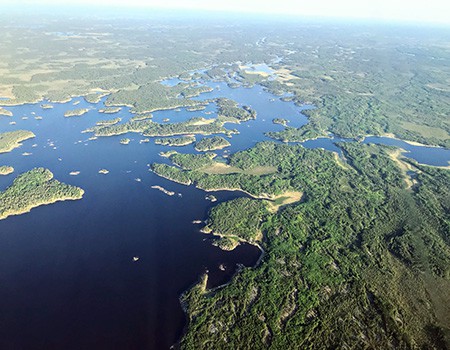
Here’s what you need to take into account:
Size Matters:
For the best chance of landing large trophy fish, opt for expansive water systems. These larger bodies of water often yield the most impressive catches. Additionally, a more extensive shoreline provides abundant structures that serve as breeding habitats for fish.
Timing is Everything:
Depending on the season of your trip, it’s vital to pick a lake system that aligns with your preferred dates. Consider the temperature conditions for the specific species you intend to target.
Species Diversity:
Research the types of species present in a given system, as this may influence your choice of fishing equipment and techniques.
Lakes with Space:
Evaluate whether your chosen lake is overcrowded with anglers or if there are enough fish to go around. A crowded lake can affect the quality of your fishing experience.
Every lake has its own set of characteristics and regulations. You should aim to select a lake that not only promises remarkable fishing tales but also delivers an unforgettable overall experience.
Question to Ask: Can you provide information about the lake, its location, and its structural features?
What’s on the Line?
The lake where a fishing lodge is situated plays a pivotal role in determining the success of your fishing expedition. Thorough research is imperative. Consider factors like the size and openness of the water, the presence of islands that offer sheltered fishing during windy days, and the lodge’s proximity to a community or road.
Be cautious about fly-outs offered by lodges. Some lodges may push you to purchase a fly-out once you arrive, which can be an unexpected expense. This situation often arises due to insufficient fishing opportunities near the lodge and high demand from sport fishermen. Keep in mind that certain lakes may be unable to handle the fishing pressure.
Fishing Guides and Lodge Staff: The Heart of Your Experience
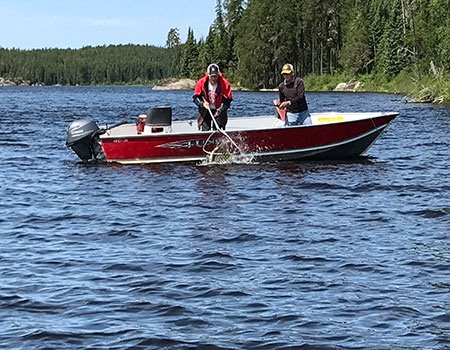
Here’s what to consider:
The Role of Fishing Guides:
Fishing guides are among the most critical elements of a fishing lodge. They are your companions on the water, and their expertise can make or break your trip. Ask yourself:
- How well do they know the lake?
- What’s their knowledge of the fish species like?
- Can they expertly handle a boat, ensuring your comfort during long days on the water?
Additional Considerations:
Think about the dining experience during your stay. Assess the number of staff available to cater to your needs around the clock. Also, inquire about the lodge owners’ tenure in the industry.
Questions to Ask:
- Can you provide insights into your fishing guides and their experience?
- What can you tell me about the meals you serve?
- Could you describe a typical evening at the lodge?
- How long have you been in operation?
What’s on the Line?
You’ll spend a minimum of 8 hours daily with your fishing guide, so professionalism and experience are paramount. While fishing quality remains essential, the warmth and competence of the staff contribute significantly to your overall experience. Remember, you’re on vacation, and excellent care is non-negotiable.
Owner Involvement:
Find out if the lodge owners are actively managing the establishment or if it’s being run by someone else. An owner’s presence in daily operations often leads to smoother and more attentive service.
Ready to plan your unforgettable fishing adventure in a remote northern lodge? Don’t wait any longer! Take the next step towards an incredible experience by researching, choosing wisely, and booking your trip today. Your dream fishing getaway awaits – seize the opportunity, create lasting memories, and embark on the adventure of a lifetime!
Understanding Lodge Package Inclusions: Your Key to a Hassle-Free Experience
When it comes to selecting a fishing lodge, each one is unique, and making the most of your investment is essential. Few things rival an all-inclusive experience where every detail is taken care of, allowing you to unwind without lifting a finger during your vacation.
Consider these important factors:
Travel Convenience:
Travel can be cumbersome, so the value of a direct flight from an international airport cannot be overstated.
Assessing Inclusions:
It’s crucial to assess the value of what’s included in your package. Look for all-inclusive offerings, such as daily lakeside shore lunches, impeccable service, and daily housekeeping to maintain cabin comfort.
Cost Breakdown:
Let’s break down the costs of a drive-in lodge for perspective:
- 4 days of guided fishing, including meals and lodging: $2500 – $3000 USD per person
- 5-8 hours of one-way driving, car rental, meals during the trip, and fuel: $1200 CAD
- 2-night hotel stay near an airport: $350 CAD.
If two fishermen share the travel and hotel costs, each person could be looking at $3300-$3825, not to mention the extra 2 days of travel to and from the lodge, potentially more depending on your starting point. Why not invest a bit more in a premium fly-in lodge, skip the extra travel days, and access superior fishing?
Question to Ask: What’s included beyond the fishing experience? Are meals, guides, beverages, flights, and travel costs covered?
What’s on the Line?
Consider your priorities and the level of service you desire. Firstly, do travel costs to reach the lodge factor into the package? If not, you’ll need to calculate the expenses involved in getting there, including car rental, fuel, food, hotel stays, float plane rides, and your time.
Additional Considerations:
- Does the package include a fishing guide, boat, motor, and fuel?
- If meals and drinks aren’t part of the package, factor in those costs, along with the hassle of transporting food.
Lastly, ensure the lodge offers full-service amenities with a well-trained staff available from dawn until the final moments of the day.
Boats, Motors, and Equipment: The Backbone of Your Fishing Experience
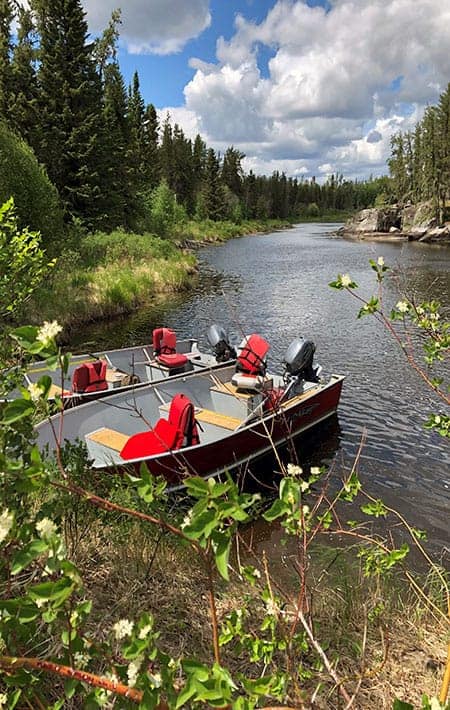
Here’s what you need to keep in mind:
Boat and Motor Quality:
The age and condition of the boats and motors used by the lodge should weigh heavily in your decision-making process. Opt for lodges that prioritize modern and well-maintained equipment.
Essential Electronics:
Having the right electronic gear on your boat is essential. It ensures your safety and enhances your fishing experience. Look for boats equipped with proper electronics to stay connected with the main lodge in case of emergencies and fish finders to help you locate the best catches below.
Comfort and Space:
A comfortable and spacious boat is a must, especially when you’re angling for those trophy catches. You’re on the water to create unforgettable fishing stories, and a good boat is the foundation of that experience.
Questions to Ask:
- What size boats and motors does the lodge use, and how old are they?
- Are the boats equipped with fish finders?
- Is there a reliable means to contact the lodge in case of an emergency while on the lake?
What’s on the Line?
Given that you’ll spend most of your fishing day in the boat, it’s crucial to ensure that they are well-maintained, comfortable, and safe. Fish finders are essential tools that assist guides in viewing various aspects of the underwater environment, including depth, structure, fish locations, speed, GPS coordinates, and water temperature. Understanding these details can significantly improve your fishing success.
Maintaining contact with the lodge is equally vital. Many remote lodges lack cell service, making satellite communication devices indispensable for safety. In the event of a boat motor issue or a medical emergency, having this communication channel can be a lifeline. A lodge worth your consideration should include this service to ensure your well-being during your stay.
In Conclusion
Exploring a remote northern fishing lodge is a significant investment, and making the right choice is vital to avoid wasting money. Here are some basic tips:
- Reviews Matter: Before booking, thoroughly review the lodge’s feedback and ratings. Hearing from real guests who have visited the lodge can provide valuable insights into their experiences.
- Seek References: Don’t hesitate to ask the lodge for references from past guests. Hearing from those who’ve been there can offer you a genuine perspective on what to expect.
- Loyalty Matters: Consider the number of returning guests a lodge has. High rates of returning visitors often indicate a positive and satisfying experience.
- Value Your Time: Be mindful of what’s included in your package. Ensure you’re getting value for your travel time and expenses.
Armed with the knowledge from this guide, embarking on a Canadian fishing trip is an adventure of a lifetime, you can confidently choose the right lodge and make the most of your fishing experience. Don’t hesitate – start planning your dream trip today!

